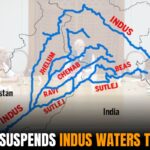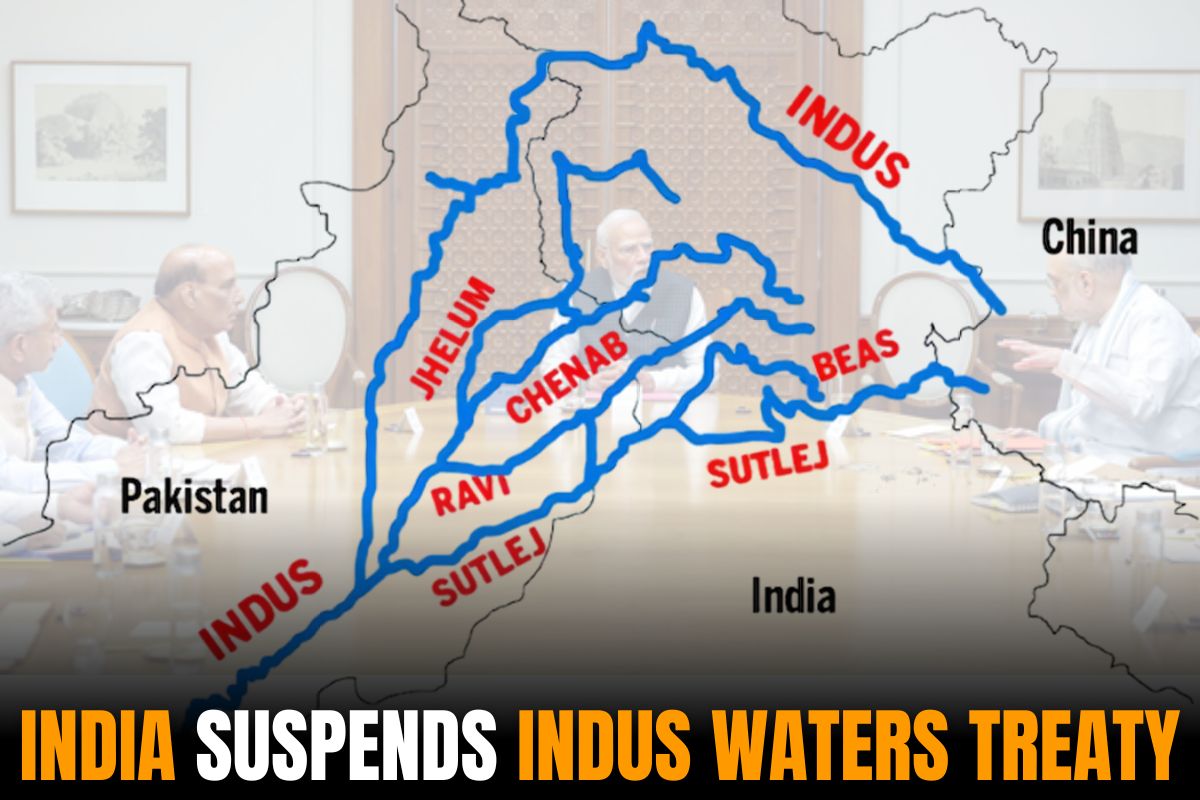


In a decisive response to the recent terrorist attack in Pahalgam that claimed 26 lives, India has suspended the Indus Waters Treaty (IWT) with Pakistan. This move marks a significant escalation in Indo-Pakistani relations, reflecting India’s stance against cross-border terrorism.
Table of Contents
ToggleOn April 22, 2025, terrorists opened fire on a group of tourists in the scenic Baisaran Valley near Pahalgam, resulting in 26 fatalities and numerous injuries. Claiming responsibility for the incident, the Resistance Front (TRF), a surrogate of the proscribed Pakistan-based Lashkar-e-Taiba, since the 2019 Pulwama attack, this incident is the bloodiest one in the area.
Related topic: Pahalgam Massacre: 28 Tourists Killed in Kashmir’s Deadliest Civilian Attack Since 2019

Following this, Prime Minister Narendra Modi presided over a Cabinet Committee on Security (CCS) meeting that resulted in various punishing policies directed against Pakistan:
Signed in 1960, the Indus Waters Treaty controls the Indus River and its tributaries between India and Pakistan. Under the Indus Waters Treaty, India manages the eastern rivers (Ravi, Beas, Sutlej), whereas Pakistan manages the western rivers (Indus, Jhelum, Chenab). Former India’s Indus Water Commissioner, Pradeep Kumar Saxena, said that, noting basic changes in circumstances, India, as the top riparian state, has several alternatives, including the possible abrogation of the pact under Article 62 of the Vienna Convention on the Law of Treaties.
In the wake of the terrorist attack in Pahalgam, chaired a meeting of the CCS at 7, Lok Kalyan Marg. pic.twitter.com/bZj5gggp5l
— Narendra Modi (@narendramodi) April 23, 2025
These steps may have a big effect on Pakistan, especially its Punjab province, which depends mostly on the Indus and its tributaries for irrigation.
Drawing the line between India and Pakistan across the Indus Basin at the time of independence in 1947 left Pakistan as the lower riparian state. Important irrigation projects such as those at Ferozepur on the Sutlej River and Madhopur on the Ravi River fell inside Indian territory, sparking conflicts over water use.
India had maintained the terms of the pact notwithstanding past strife, including the Kargil War and continuing insurgency. The present suspension marks a change in India’s policy as it links water sharing directly to Pakistan’s acts on cross-border terrorism.
The IWT’s (Indus Waters Treaty) suspension has attracted notice from all around. India claims the right to react to terrorism, but Pakistan has denounced the action, calling it “water warfare.” Global leaders pushing moderation and communication have helped to lower tensions between the two nuclear-armed neighbors.

